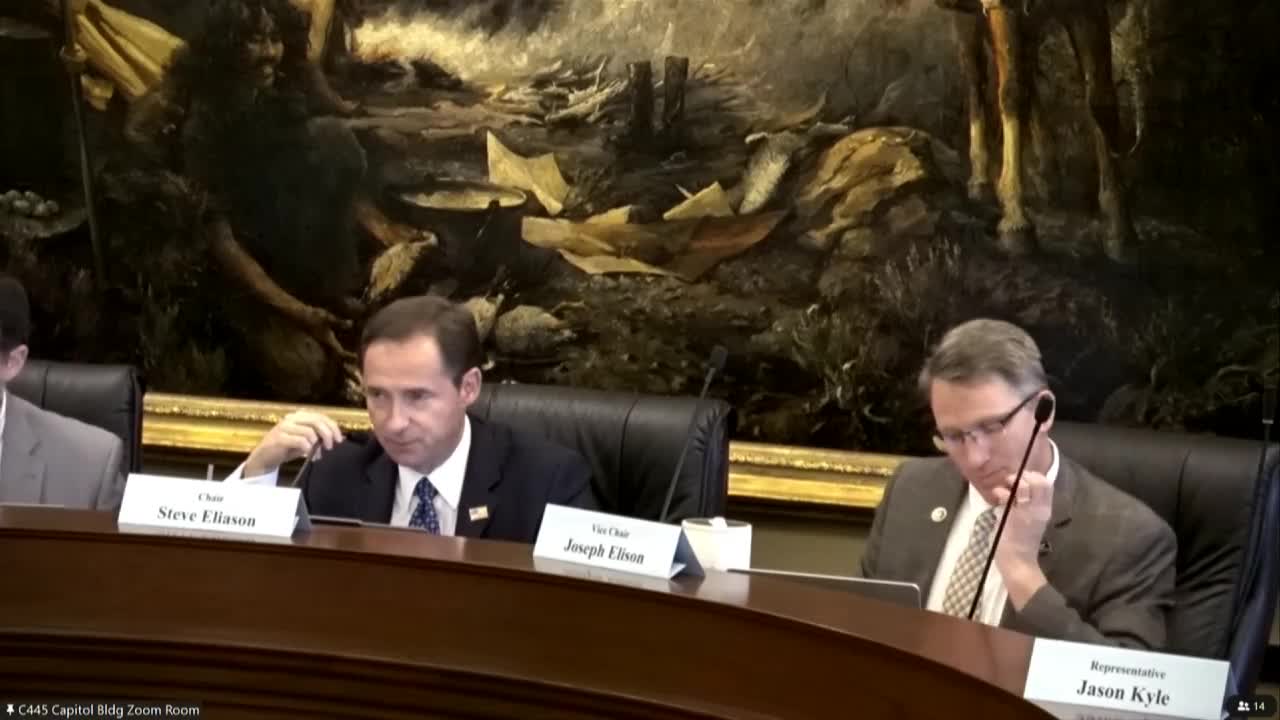Committee pauses bill expanding state payments for 911 dispatch operations after fiscal questions
Get AI-powered insights, summaries, and transcripts
Subscribe
Summary
Lawmakers advanced an amendment to HB 116 that would shift more personnel costs for public safety answering points to the state, but then voted to hold the bill pending an updated fiscal note after witnesses estimated the change could add about $7 million in ongoing costs.
Representative Zachary Watkins brought HB 116, a bill about public safety answering points (PSAPs), and a sponsor amendment that would expand the state's role in paying dispatcher-related costs.
The bill and the amendment would increase the Department of Public Safety's share of PSAP personnel costs. "For those of you that don't know what an answering point is, that's what it is is our, dispatch centers," Representative Watkins told the committee, adding that the sponsor amendment "kinda changes the whole bill."
Mayor Michael Coriannis of Price told the panel small, rural cities are struggling to match higher dispatcher pay that the state now funds at least in part. "When those employees are getting raises, it impacts our city, officers," he said. He described local difficulty matching raises for police when dispatcher pay increases are set at the state level and suggested shifting costs could allow cities to reallocate local dollars toward officer pay.
Colonel Mike Rapich of the Utah Highway Patrol, who also identified himself as a deputy commissioner with the Department of Public Safety, described how PSAP funding is currently structured and estimated the fiscal effect of the amendment. "The Department of Public Safety operates 5 PSAPs within the state," Rapich said, and described a funding mix in which dedicated credits provide roughly 40% of operating budgets for those centers. He testified that replacing that dedicated-credit share with state appropriations would likely be on the order of $7,000,000.
Committee members pressed the sponsor and DPS on how the amendment would change which counties and centers are covered and on how the dedicated credits and general fund would be affected. Representative Christopherson asked whether there is money in the dedicated-credit fund and how its reallocation would affect other uses; the sponsor and witnesses said an appropriation would be required and that the fiscal note had to be updated after the amendment was adopted.
The committee adopted Amendment 1 on the record. Representative Provo moved the amendment; the chair called the vote and the committee "Aye," and the chair ruled it passed unanimously. After adopting the amendment, Representative Kyle moved to hold HB 116 so staff could obtain an updated fiscal estimate; members discussed that the committee's appropriations process is nearly complete but that the issue is real for rural communities, and several members expressed willingness to continue working with the sponsor.
The committee voted unanimously to hold HB 116 as amended pending a revised fiscal note and further work.
Ending
The committee did not advance the bill to the next step; rather, it adopted Amendment 1 to create a fuller fiscal picture and then held HB 116 to allow the updated fiscal analysis to be prepared. Witnesses and sponsors stressed the bill was intended to ease cost pressure on small rural jurisdictions that contract with state-operated PSAPs, while Department of Public Safety staff warned the change would represent a significant ongoing appropriation for the state.
